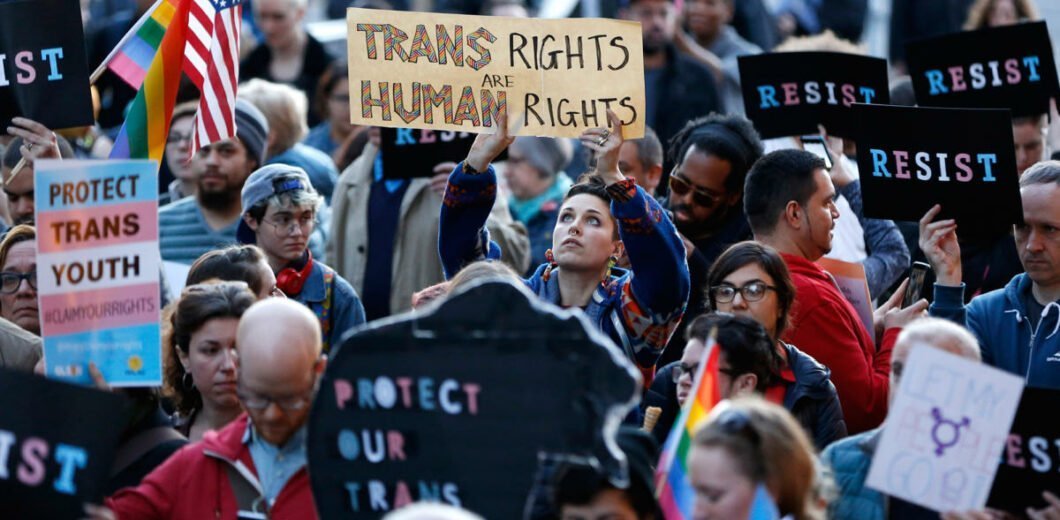The 52nd UNAIDS Programme Coordinating Board (PCB) thematic segment topic was “Priority and key populations especially transgender people, and the path to the 2025 targets: Reducing health inequities through tailored and systemic responses” and took place on 28 June 2023.
The thematic segment provided an opportunity for the PCB to discuss the inequalities that are preventing progress in the HIV response for key populations, especially transgender people, and how the HIV response can more effectively reduce the risk and impacts of HIV among these populations. Examples of initiatives being implemented in all regions were presented, especially those tailored by and responding to the needs of key populations, especially transgender communities in all their diversity. Finally, recommendations were made for the improvement of the HIV response at national, regional and global levels. These recommendations will be discussed at the 53rd PCB meeting
In particular, the thematic segment focused on the following issues:
- Analysing the burden of HIV among priority and key populations through an inequalities lens (prevalence, new infections, AIDS-related deaths). Review progress against global HIV targets (including 10-10-10 targets on societal enablers and 30-80-80 targets on community-led responses) and highlight current HIV evidence and gaps;
- Discussing the inequalities and human rights barriers preventing progress in the HIV response for key populations (access to health services, stigma and discrimination, criminalization and punitive laws, etc.);
- Identifyingfing the challenges, needs and gaps in the HIV response for key populations, especially transgender people;
- Identifying best practices and innovative interventions that can lead the response for the achievement of the 2025 targets for key populations, especially transgender people, including on societal enablers;
- Exploring recommendations on global, country and country actions; and
- Suggesting recommendations and next steps.
Examples and learning from countries from different regions and across the Joint Programme were highlighted during the thematic segment.
To inform the session, UNAIDS seeks case studies of successful programmes and approaches to reducing health inequities through tailored and systemic response with a focus on key populations, especially transgender people.
Scope of submissions
Specifically, UNAIDS is seeking examples of successful interventions focused on addressing the needs and challenges of key populations, especially transgender people. As you provide your information, UNAIDS is seeking details on the following:
- What key population groups were reached (men who have sex with men, transgender people, people who inject drugs and sex workers and their clients)
- What are the intersecting identities and vulnerabilities considered in the intervention?
- What is the area of focus of the intervention (prevention, testing and treatment; integration of health services; research and data collection; law reform and stigma and discrimination; community-led responses; humanitarian and human right crises responses; improve of legal environment and change norms etc.)
- Where is your approach implemented (country and region – sub-Saharan Africa, Asia, and the Pacific, Eastern Europe and Central Asia, Latin America, and the Caribbean, etc.)
- What were the outputs/outcomes (number of people reached with services, increase in uptake of specific services, etc.)
- How this intervention is contributing to reducing inequalities and for the achievement of the HIV 2025 targets, including 10-10-10 targets on societal enablers and 30-80-80 targets on community-led responses?
- Are interventions community-led/How are people from the impacted community/community led organisations involved in this intervention? eg. beneficiaries, implementers, designers, leaders, evaluators?
- Why was your approach successful?
- What were the weaknesses of the project/what went wrong/what happened that was unexpected/unanticipated ?
- Cost of the approach and any plans for sustainability,
- Is your approach published, and if so, link to the publication, as well as links to any photos?
- Quotes or stories from individuals/organisations involved in the project.
Who can submit?
UNAIDS welcomes submissions from national AIDS programmes; Ministries of Health, and other relevant Ministries; civil society organisations particularly those representing or providing services to key populations especially transgender people; academic institutions; national human rights institutions; United Nations system and other international organizations; and other national or local entities involved in the work on HIV and men and improving HIV service uptake for those who underutilize them.
How will the submissions be used?
The submissions will be used to inform the background note to the UNAIDS 52nd PCB Thematic Segment. Some submissions may also be selected to be presented during the Thematic Day on 28 June 2023. Finally, all the submissions received before the deadline of 8 May 2023 will be compiled in a document on good practices which will be posted on the UNAIDS Programme Coordinating Board website.
Submissions are accepted in English and French through the below online forms by the close of business on Friday, 12 May 2023.
EN: https://forms.office.com/
FR: https://forms.office.com/
For more information on the UNAIDS Programme Coordinating Board, please see: UNAIDS Programme Coordinating Board | UNAIDS
For questions on this call for submissions of good practices, please contact Cleiton Euzebio de Lima EuzebiodeLimaC@unaids.org and Adriana Hewson hewsona@unaids.org.
